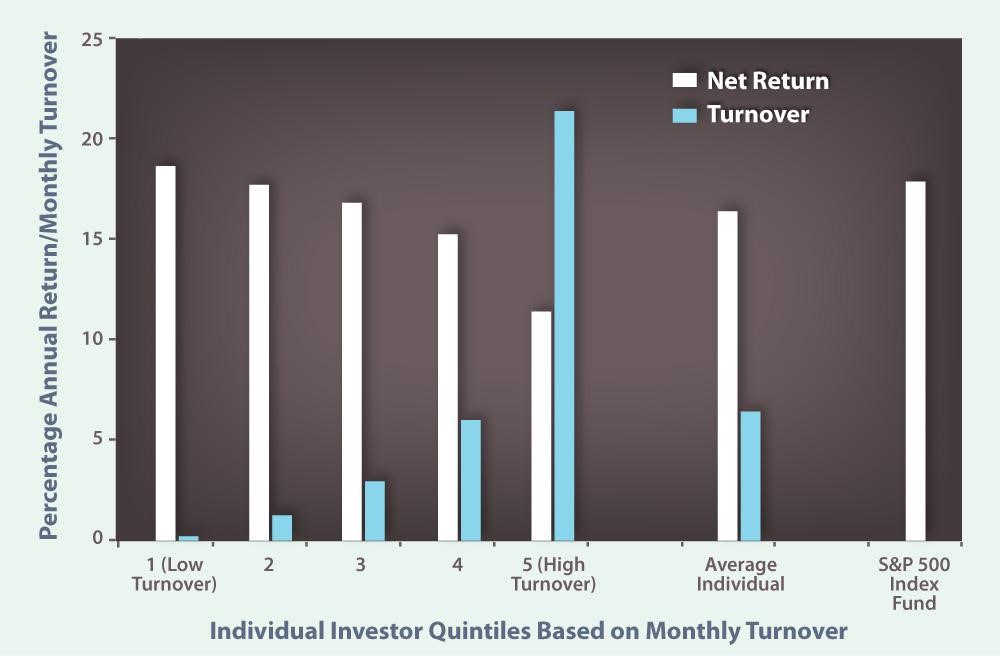“The 10,000-hours rule says that if you look at any kind of cognitively complex field, from playing chess to being a neurosurgeon, we see this incredibly consistent pattern that you cannot be good at that unless you practice for 10,000 hours, which is roughly 10 years, if you think about four hours a day.” – Malcolm Gladwell
10,000 hours of “deliberate practice.” That is the key to achieving “world-class” expertise in any field. So said Malcolm Gladwell in his best-selling book – “Outliers: The Story of Success.”
The Beatles and Bill Gates, according to Gladwell, had this much in common before hitting it big: more than 10,000 hours perfecting their craft.
The saying “practice makes perfect” resonates with us all. We are taught that the more we work at something, the harder we try, the better we become. And very often, this is true, up to a point.
If we run more, we become faster. If we lift more weights, we become stronger. If we do more math problems, we become better at math. If we practice the piano longer, we sound better.
But all disciplines are not created equal. “Deliberate practice” has been found to be most effective in explaining the variance of performance in games, music and sports. These are fixed, stable systems where the rules don’t change. In less stable fields, deliberate practice is a much poorer predictor of success. Randomness and serendipity play a much greater role in these fields than we want to believe.
Which is why what I’m going to say next is not going to sit well with many, especially if you do this for a living.
The 10,000 hour rule does not apply to trading/investing.
Why not?
Because trading/investing is not tennis or chess; it is at the complete opposite spectrum. Tennis and chess are games with fixed rules; investing is a game where the rules (markets, probabilities) are always changing. As Michael Burry of “The Big Short” fame once said: “no school could teach someone to become a great investor.” If there was such a school “it’d be the most popular school in the world, with an impossibly high tuition.”
There can be no standardized path to excellence in a field that is so heavily dictated by chance. Whether you believe the markets are perfectly efficient and follow a purely random walk or not (I do not), we know that luck trumps skill in investment outcomes. Let me say that one more time: luck trumps skill in investment outcomes.
This is most glaringly true in the short run but also can be true in the long run (if a million people flip a coin or pick a stock, someone will likely land on heads or pick a winner 20 straight times).
As such, the successes of the “market wizards” of years past are neither decipherable nor repeatable. They were certainly “outliers” in terms of their performance, but we cannot objectively tell whether that performance was the result of skill or luck. There is no simple test that can decipher between the two. But even if we concluded that there is at least some skill involved, doing x, y, and z because a “market wizard” did x, y and z in the past is a guarantee of nothing.
For no amount of practice, “deliberate” or otherwise, would be sufficient to achieve their “world-class” or “mastery” status as the environment they operated in no longer exists. It was ephemeral. If the wizards themselves were faced with the task of repeating their prior successes, they too would fail – Warren Buffett would not be the next Warren Buffett if he had to start over again today. Paul Tudor Jones would not be the next Paul Tudor Jones. Stanley Druckenmiller would not be the next Stanley Druckenmiller.
Different markets. Different environments. Different outcomes.
But you can do much worse than trying to emulate the market wizards of the past. What many so-called “professional” investors consider “practice” is nothing of the sort. They spend their entire careers reading the news, watching financial TV, trading stocks on rumors and tips, and practicing old wives’ tales and myths. They can spend 50,000 hours during a career engaging in such activities and have achieved “mastery” of … nothing.
In “Thinking Fast and Slow” Daniel Kahneman relates a story on the “illusion of financial skill.” He and Richard Thaler were given a vast amount of performance data on a group of twenty-five wealth advisers over an 8-year period. The advisers were compensated in large part based on their investment performance and all “felt they were competent professionals doing a serious job.”
Their finding: there was no evidence whatsoever of persistent stock-picking skill – “the results resembled what you would expect from a dice-rolling contest.” The firm was “rewarding luck as if it were skill.” When Kahneman/Thaler presented their findings, the firm went on just as before, learning nothing at all from the experience. “I have done very well for the firm and no one can take that away from me,” said one adviser.
This should not be all-that surprising, for as Kahneman noted, “facts that challenge such basic assumptions – and thereby threaten people’s livelihood and self-esteem – are simply not absorbed.”
The experience of these advisers was by no means unique. As Kahneman goes into detail explaining: “professional investors, including fund managers, fail a basic test of skill: persistent achievement.” The best performing fund managers over the standard three-year evaluation periods often become the worst and vice versa. Study after study show a lack of persistence in performance and to the contrary, evidence of mean reversion.
Herein lies the dilemma. What is the average investor to do if spending 10,000 hours or more “practicing” will not necessarily make you perform better?
They can start by spending just 10 minutes learning of the importance of low costs, diversification and asset allocation. If they do this and nothing else they will beat most of the so-called “pros” as a jack of all trades and a master of nothing. In a field where the outcome is driven more by luck than by skill, being a master of nothing (diversification, protecting yourself from the unknowable future) yields the highest probability of success.
How can this be? Doesn’t more effort/study/specialization/practice/trading equal higher returns? No, not necessarily.
Doing less actually tends to lead to higher returns. Not for everyone (there will always be outliers, skillful or otherwise), but for most.

It is one of the unique paradoxes of this business that more “practice,” more “trading,” more “opining” on markets can actually lead to poorer results. This is so because we are dealing with an unstable system where “deliberate practice” is nearly impossible. What do you practice if the future will look nothing like the past?
This is so antithetical to our way of thinking that doing nothing is probably the most difficult thing you can do, so difficult that you become “world-class” in doing nothing almost by default. Which is why I firmly believe that there is such a thing as an investment professional. It’s just not anything close to what we tend to think it is (an overly confident, brash personality making extreme forecasts and firing away trades all day). Being an investment professional is more akin to being a 1st grade teacher and a psychologist: educating your clients on the same simple concepts over and over again while helping to control their emotions. This is true regardless of where you fit in the active-passive spectrum.
If you are a fiduciary and are going to spend 10,000 hours doing something, shut off the TV and spend your time doing this:
- Helping your clients understand what they own and why they own it.
- Helping your clients control their fear of missing out and their impulse to panic and sell (fear of drawdowns/losses).
There is no harder task in this business than protecting investors from themselves. After more than 10,000 hours into my journey, of this one thing I am sure.
To sign up for our free newsletter, click here.
This writing is for informational purposes only and does not constitute an offer to sell, a solicitation to buy, or a recommendation regarding any securities transaction, or as an offer to provide advisory or other services by Pension Partners, LLC in any jurisdiction in which such offer, solicitation, purchase or sale would be unlawful under the securities laws of such jurisdiction. The information contained in this writing should not be construed as financial or investment advice on any subject matter. Pension Partners, LLC expressly disclaims all liability in respect to actions taken based on any or all of the information on this writing.


